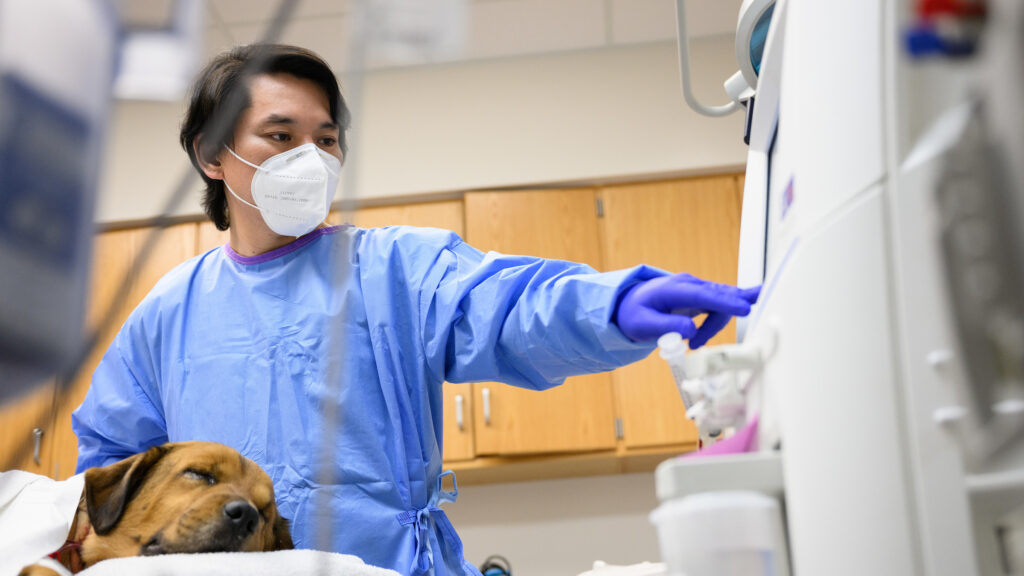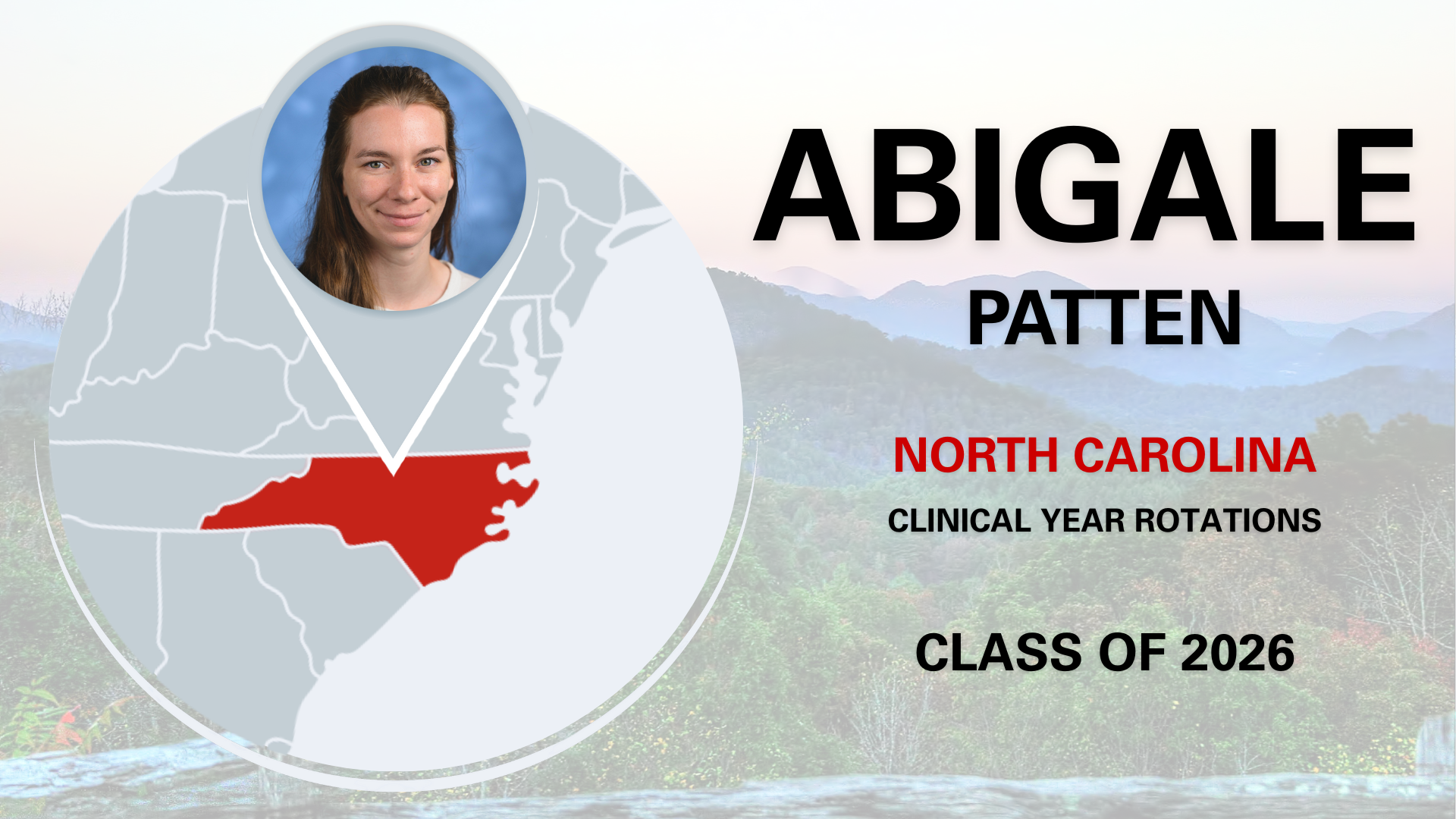Status Change: Nephrology and Urology Specialty Reaches College Level
NC State Professor Shelly Vaden is president-elect of the new American College of Veterinary Nephrology and Urology.
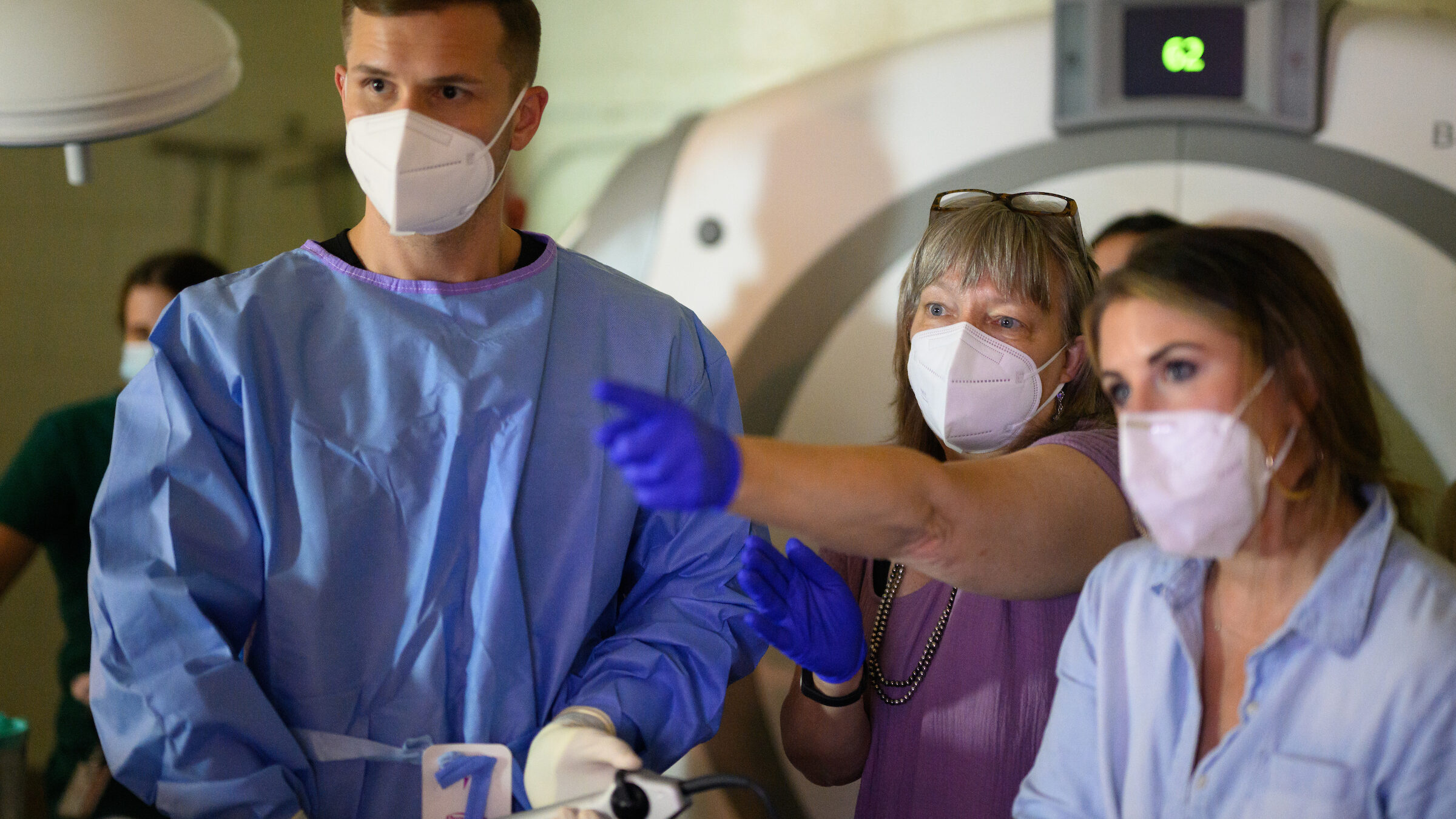
Recognizing that the field of veterinary nephrology and urology has grown in complexity and vision, the AVMA American Board of Veterinary Specialties has provisionally approved a petition to elevate the specialty to college status.
Shelly Vaden, professor of internal medicine at the NC State College of Veterinary Medicine, is president-elect of the new American College of Veterinary Nephrology and Urology (ACVNU), which will be able to apply for permanent status after four years.
“The field of veterinary nephrology and urology has grown exponentially over the past 15 to 20 years so this is a very exciting opportunity to pull all the people together who are making these changes and devoting clinical time to the field so we can continue to make clinical advances,” says Vaden, whose research focus has been on the upper and lower urinary tract of the dog. “We’ve gotten so advanced with urinary procedures, and many of these require training beyond residency to develop proficiency.”
A huge part of what the college will do is formalize and oversee training programs, Vaden says. The nephrology and urology speciality has always been part of internal medicine. The ACVNU will allow internists and criticalists to pursue advanced training in nephrology and urology, beyond what they would get in their internal medicine or emergency and critical care residencies.
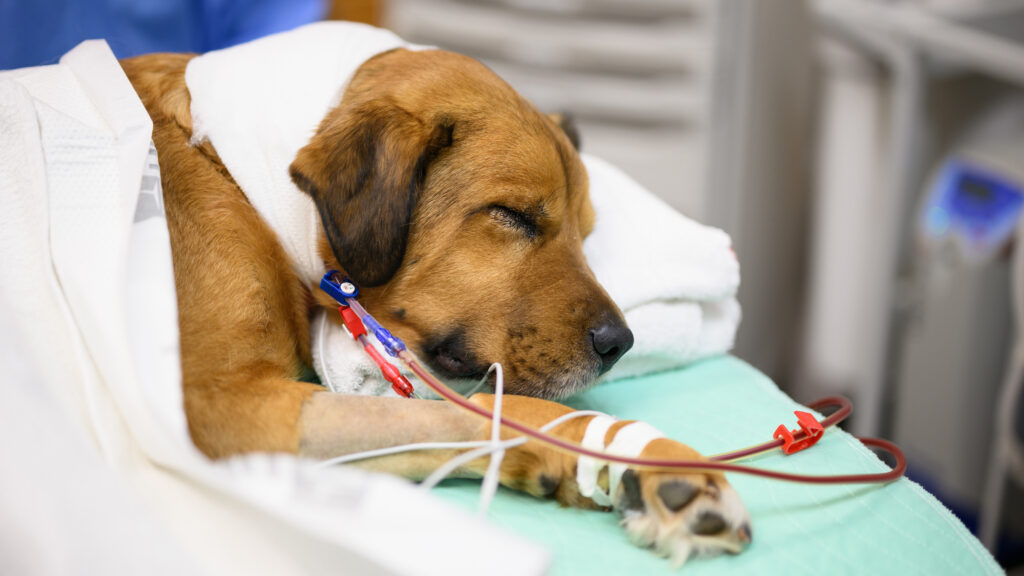
NC State was one of the first veterinary schools in the United States to offer focus clinics in nephrology and urology, Vaden says, and now the college is adding fellows to that service. In July, Tanner Slead, who just completed a residency in internal medicine at NC State, became the first fellow in nephrology and advanced urological procedures at the College of Veterinary Medicine. This month, Andre Le Sueur will become a fellow in extracorporeal therapies. Fellowships offer advanced training in a specialized discipline, beyond what can be learned in a three-year residency program.
On NC State’s nephrology and urology team, the fellows join Vaden, director of extracorporeal therapy service; Yu Ueda, assistant professor of emergency and critical care and associate director of dialysis and apheresis; and Allison Kendall, assistant clinical professor of internal medicine who has advanced training in urological interventional procedures.
“The internal medicine speciality is huge, but the addition of the new college allows us to become tailored experts in nephrology and urology,” Kendall says. “This is so exciting for our patients because it provides top of the line speciality care that they won’t be able to get anywhere else. I am so excited to bring this to our patients at the NC State CVM and to be an early leader in this field.”
The petition in support of having nephrology and urology recognized as a college, written by an organizing committee that included Vaden, cited how advancements in the research and understanding of urinary diseases have led to innovations in diagnostic methods and disease management.
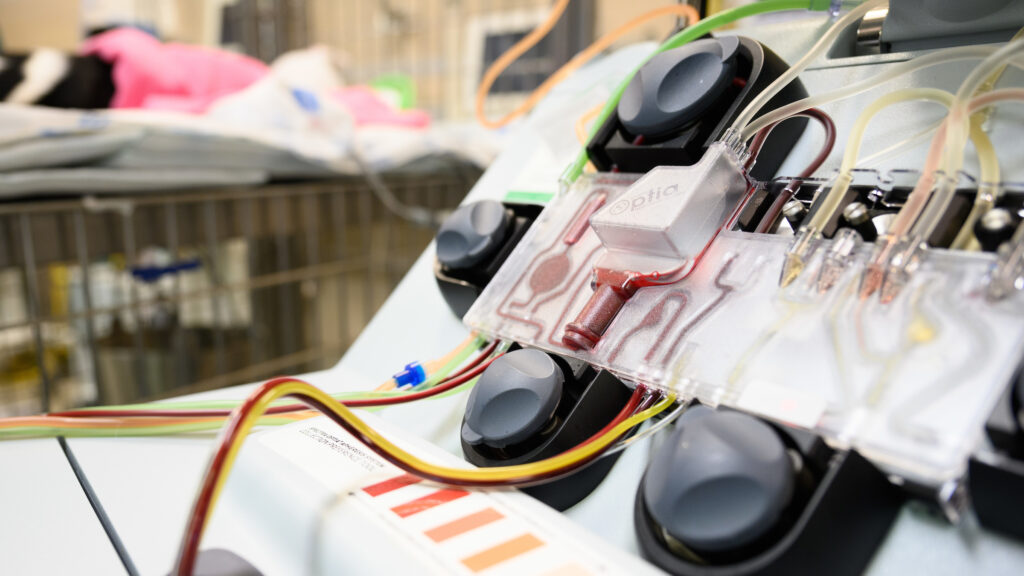
“These include, but are not limited to chronic kidney disease, acute kidney injury, glomerular diseases, urolithiasis, urinary tract infection, incontinence, and urologic neoplasia,” the petition said. “The evolution of sophisticated techniques including extracorporeal therapies and endourology have become the advanced standards-of-care for many urinary diseases.”
More centers now offer dialysis for dogs and cats throughout the world, and urinary diseases that had required surgery now can be handled less invasively. At NC State’s Veterinary Hospital, the treatment offerings include diagnostic and therapeutic cystoscopy, nonsurgical stone retrieval and removal, endoscopic urethral bulking for incontinent dogs and urethral and ureteral stenting and ballooning for malignancies, strictures, obstructions or infections.
“We’re continuing to expand capabilities and learn new techniques,” Vaden says. “The ACVNU gives recognition to those centers, including NCSU, that have dedicated experts in this field.”
“This is so exciting for our patients because it provides top of the line speciality care that they won’t be able to get anywhere else. I am so excited to bring this to our patients at the NC State CVM and to be an early leader in this field.” — Assistant professor Allison Kendall
Ueda cited a recent local case of a dog whose kidneys were damaged when it was trapped inside a hot car.
“The emergency vet hospital called us just this morning with a young Yorkie that had heatstroke and severe acute kidney injury requiring hemodialysis treatment to save his life,” Ueda says. “NCSU is the only hospital offering hemodialysis treatment for dogs and cats in this area so they called us for help.”
Ueda says the closest veterinary hemodialysis centers to NC State are in Washington, D.C., and Florida.
The ACVNU will differ from other colleges within the AVMA American Board of Veterinary Specialties in that members will need to be board-certified in another discipline or have at least four years of experience in the field.
For example, Kendall and Vaden are certified in internal medicine, and Ueda is certified in emergency and critical care.
“When animals have diseases in other systems of the body, the kidneys are affected,” Ueda says. “It’s very important to understand nephrology but also to understand the interactions with other organs.”
The ACVNU will offer two certifications: diplomate for candidates with backgrounds in patient care such as internal medicine and emergency and critical care, and affiliate member for those with nonpatient care backgrounds such as pathology, clinical pathology and clinical nutrition.
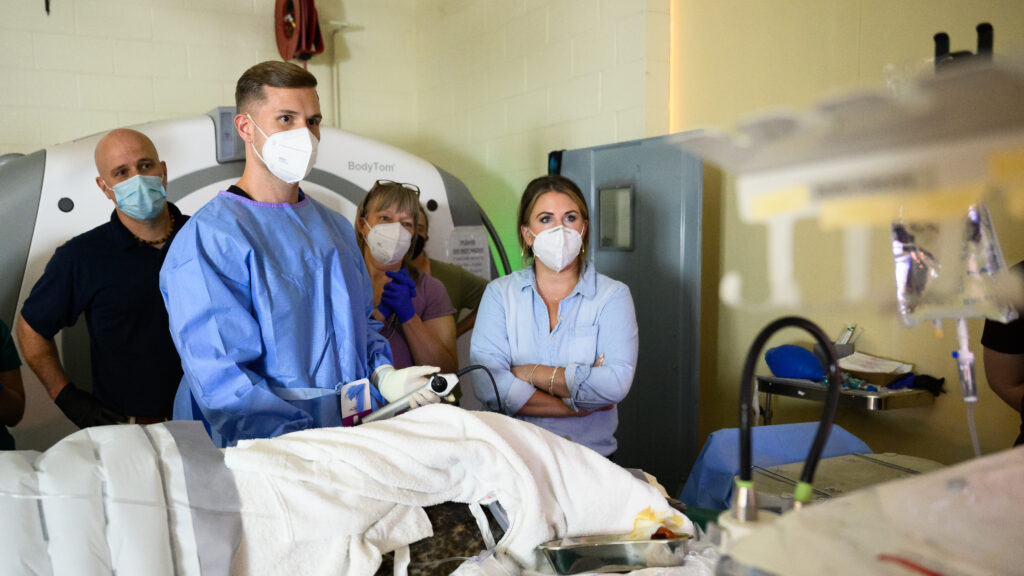
Kendall says veterinary medicine continues to follow the lead of human medicine.
“Just like in human medicine, it is challenging to be an expert in all fields,” she says. “Having more focused training in a specific area is going to drastically improve the quality of care in veterinary medicine by creating experts in the field. I think the College of Nephrology and Urology is leading the way for more colleges to start and enhance the level of care we provide.”
As the college’s president-elect, Vaden has a lot of work to do to get the new ACVNU up and running, but she’s excited that her field has reached the next rung of recognition.
“The whole premise of having a college is to continue to expand the knowledge in the field,” she says. “The idea is that we organize and we work together with other universities to expand our understanding of the diseases that affect kidneys and urinary tract and develop better ways to diagnose and manage those, all while training new specialists in the field.”
